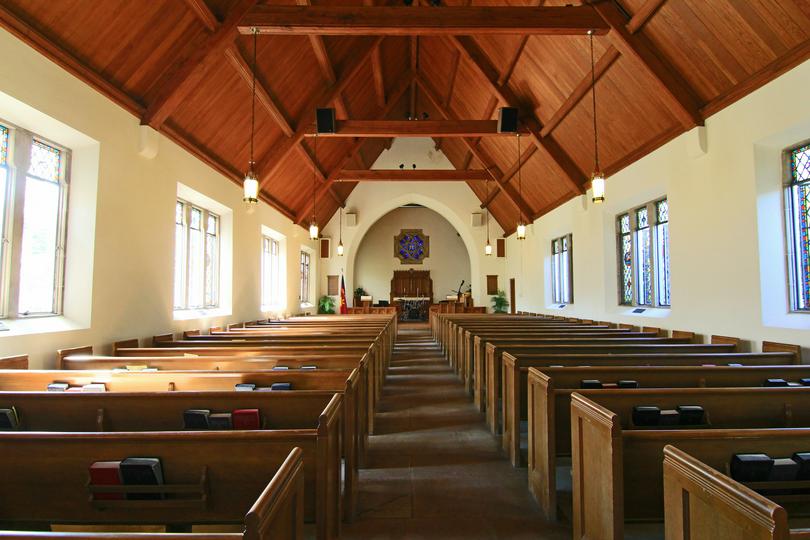Throughout his ministry, Pastor Kou has served in various churches across central and southwestern China. In an interview, he highlighted a troubling trend in some churches today: certain pastors regard believers as "their own flock" rather than "the Lord's sheep." He noted that this mindset not only threatens church unity but may also hinder the spiritual growth of congregants.
When Churches Hire Like Corporations
Pastor Kou observed that many churches are increasingly adopting corporate-style approaches in selecting staff and leaders, overemphasizing outward qualifications while overlooking the core of spiritual life. "They look at where someone studied theology, their academic credentials, and their knowledge, with little attention given to whether the person genuinely loves the Lord, possesses spiritual maturity, or has a valuable inner character," he said.
He also pointed out that some individuals rise to leadership positions based on seniority or personal connections rather than authentic spiritual leadership. "How can such individuals lead? Even if they assume leadership roles, how can they truly understand what it means to shepherd the Lord's flock?" he questioned.
The Solidification of Spiritual Experience: Limiting God to One's Personal Framework
Pastor Kou emphasized a common issue among some pastors: after undergoing particular spiritual experiences, they tend to confine their understanding of God within the boundaries of those experiences and their cognitive frameworks, akin to attempting to contain the vast ocean in a small bottle of water.
He remarked, "Those who do not know the Lord may ask, 'Who is God? I am God myself.' Yet even those who know the Lord, who truly believe and have encountered Him, often fall into the trap of thinking, 'God is like this,' and proceed to confine Him. But is God only like this?"
Pastor Kou observed that too often, churches are shaped entirely by the leaders' personal spiritual experiences. If the leaders speak in tongues, the whole church follows suit. If they cast out demons, the church becomes all about deliverance. If they are devoted to Scripture, the congregation revolves around that. They guide others based on past experiences rather than continuing to seek God Himself. "Was this truly the reason Jesus died for us?" he asked. "Even taken together, they fall short of the fullness of what He came to give."
Are Believers Being Truly Pastored—Or Merely "Raised in Captivity"?
In some churches, believers' spiritual growth is limited by pastors who are overly concerned about them engaging with other churches or alternative perspectives. Pastor Kou humorously referred to this tendency as akin to "the loss of state-owned assets."
"Some pastors treat believers as if they belong to them," he explained. "Letting their 'sheep' go feels like losing state property. Even when they know in their hearts they should release them, they simply cannot. Their mindset is narrow, believing that if believers are to grow, it must be under their leadership."
This mindset, he noted, often results in believers either losing the ability to think independently or being silenced for expressing differing views.
"Many believers become spiritually confused. They lack a clear understanding of the truth and fail to recognize that Jesus is their head. Instead, they begin to see church elders or leaders as their authority," he said.
Pastor Kou lamented, "The very problems we see in society also exist within the church. Society, at least, has systems of prosecution, supervision, and law enforcement. But many churches lack sound governance. They claim to entrust everything to God, but what is the reality?"
The Solution: Let Believers Become True Christians
How can pastors lead well in their position, and how can believers stop being misled and truly pursue their faith? Pastor Kou emphasized a return to the essence of the Christian faith. "The key is to help believers in the Lord become true Christians," he stated, which begins with reading the Bible and receiving divine revelation.
"God provides many revelations, but there is a central revelation concerning Christ and the church. Everything else should point toward and support this," he explained. Believers of God should consistently reflect on whether their actions align with this central truth. He added that revelation is not merely a fleeting dream but rather a spiritual insight.
"Christianity is a matter of the heart, not an external display," he stressed. "Without inner substance, all outward forms are meaningless. The Christian's true calling—bearing witness to the truth—must become their primary pursuit."
Pastor Kou also urged pastors to reflect on their roles: "When pastors fix their eyes on Christ and become genuine followers of him, they will naturally return to their pastoral calling, continue their personal growth, and lead congregants to grow, thereby becoming shepherds appointed by the Lord, not landlords keeping the 'flock' in captivity."
He further emphasized that true believers must maintain a clear conscience and a sincere faith, grounded in the pure Word of God and indwelt by the Holy Spirit. Spiritual leaders, in particular, must possess a revelatory understanding of the truth to guide believers in a genuine experience of God.
There Is Always a "Lifeline" Led by God
Despite the many challenges facing the church, Pastor Kou expressed confidence in God's sovereign guidance.
"God will always provide His wisdom," he affirmed. "This thread of life has existed since the Book of Genesis, enduring trials and hardships, yet it continues unbroken to this day. God, in His sovereignty, sustains all things and teaches all people through His Word."
He encouraged believers, saying, "Everyone can read the Bible and pray. Reality may not be fair to all, but the truth is. As long as you offer yourself before the Lord, you will surely receive something in return."
Originally published by the Christian Times
- Edited by Katherine Guo and translated by Poppy Chan












